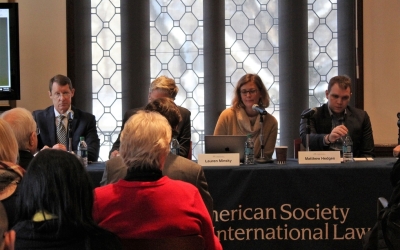UAE charges British man reportedly arrested for wearing Qatar football shirt

A British man reportedly arrested in the United Arab Emirates for wearing a Qatar football shirt has admitted charges of "wasting police time and making false statements," the Emirati embassy in London said on Tuesday.
The Guardian newspaper reported earlier in the day that Ali Issa Ahmad, a 26-year-old British-Sudanese dual national, had been arrested while on holiday in the UAE where he attended an Asian Cup match between Qatar and Iraq on 22 January.
A friend of Ahmad's who had spoken to him in detention told the newspaper that Ahmad had told him he was unaware that wearing the Qatar shirt was a punishable offence in the country.
But the Emirati embassy on Tuesday denied that Ahmad had been arrested for wearing the football shirt and instead said he had been charged after allegedly falsely claiming that he had been "harassed and beaten up" by Emirati football fans.
Police took Ahmad to hospital where doctors concluded his injuries appeared to be self-inflicted and inconsistent with his account, the embassy said in a statement, and he was then charged with "wasting police time and making false statements".
'He was categorically not arrested for wearing a Qatar football shirt. This is an instance of a person seeking media attention and wasting police time'
- Emirati official
"We are advised he has since admitted those offences and will now be processed through the UAE courts," it said.
"We are in touch with the UK embassy and due process has been followed. Mr Ahmad speaks Arabic and fully understands the situation he has put himself in.
"He was categorically not arrested for wearing a Qatar football shirt. This is instead an instance of a person seeking media attention and wasting police time," an official said.
Since June 2017, the UAE has prohibited "showing sympathy for Qatar on social media or by any other means of communication," according to the British government’s official foreign travel advice website.
"Offenders could be imprisoned and subject to a substantial fine," it said.
Amer Lokie, a friend of Ahmad's, told the Guardian that Ahmad had been released after his initial arrest and then rearrested over claims that he had made false allegations about security officials.
"It seems that he was released after being detained, assaulted by the security men in the car and accused of promoting Qatar. He went to the police station to report the assault and was accused of telling lies about the incident," he said.
"We’re not clear about exactly what happened next but he has been held because he is accused of making false allegations against UAE security officials."
The UAE’s prohibition on "showing sympathy to Qatar" was established in 2017, after the country cut off diplomatic relations with Doha in conjunction with Saudi Arabia, Egypt and Bahrain.
The four countries accused Qatar of promoting terrorism, supporting Iran and threatening their national security - allegations which Qatar denies.
Lokie also told The Guardian that Ahmad’s phone had been taken by officials and wiped clean, adding that Ahmad said he had been held in a small room for two days.
"He begged us to do whatever we can to get him released so we contacted the Foreign Office and asked them to help get him released," Lokie said.
"He said he would call us back but since then we have not heard anything from him. I am in shock that he was arrested and assaulted because of the football T-shirt he was wearing. We are all so worried about him. This is very serious."
The treatment of British nationals detained in the UAE became a diplomatic issue last year when a British academic, Matthew Hedges, was arrested and accused of spying.
Hedges was sentenced to life imprisonment but subsequently pardoned and released in November following British diplomatic pressure.
He said he had been forced to sign a false confession and mistreated and threatened with torture during six months in detention. An Emirati official said after his release that Hedges was "100 percent a secret service operative".
Middle East Eye propose une couverture et une analyse indépendantes et incomparables du Moyen-Orient, de l’Afrique du Nord et d’autres régions du monde. Pour en savoir plus sur la reprise de ce contenu et les frais qui s’appliquent, veuillez remplir ce formulaire [en anglais]. Pour en savoir plus sur MEE, cliquez ici [en anglais].





